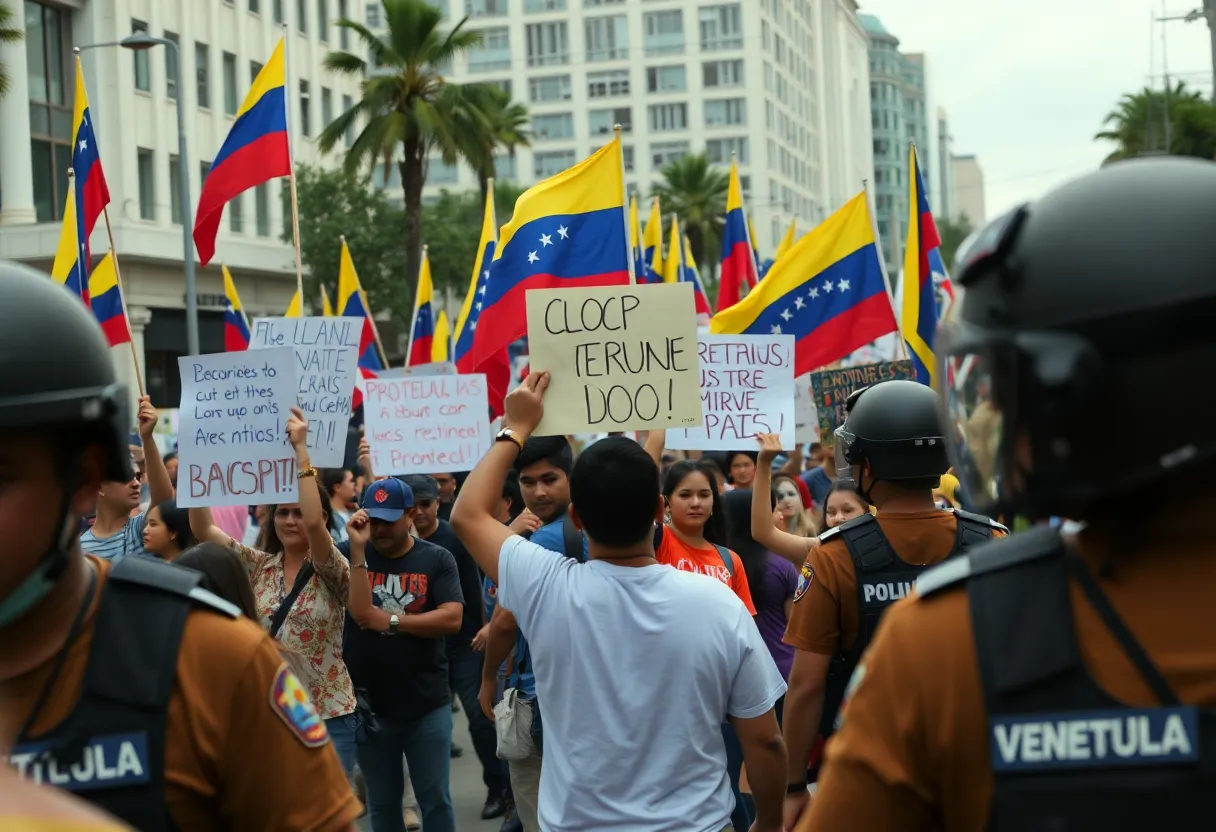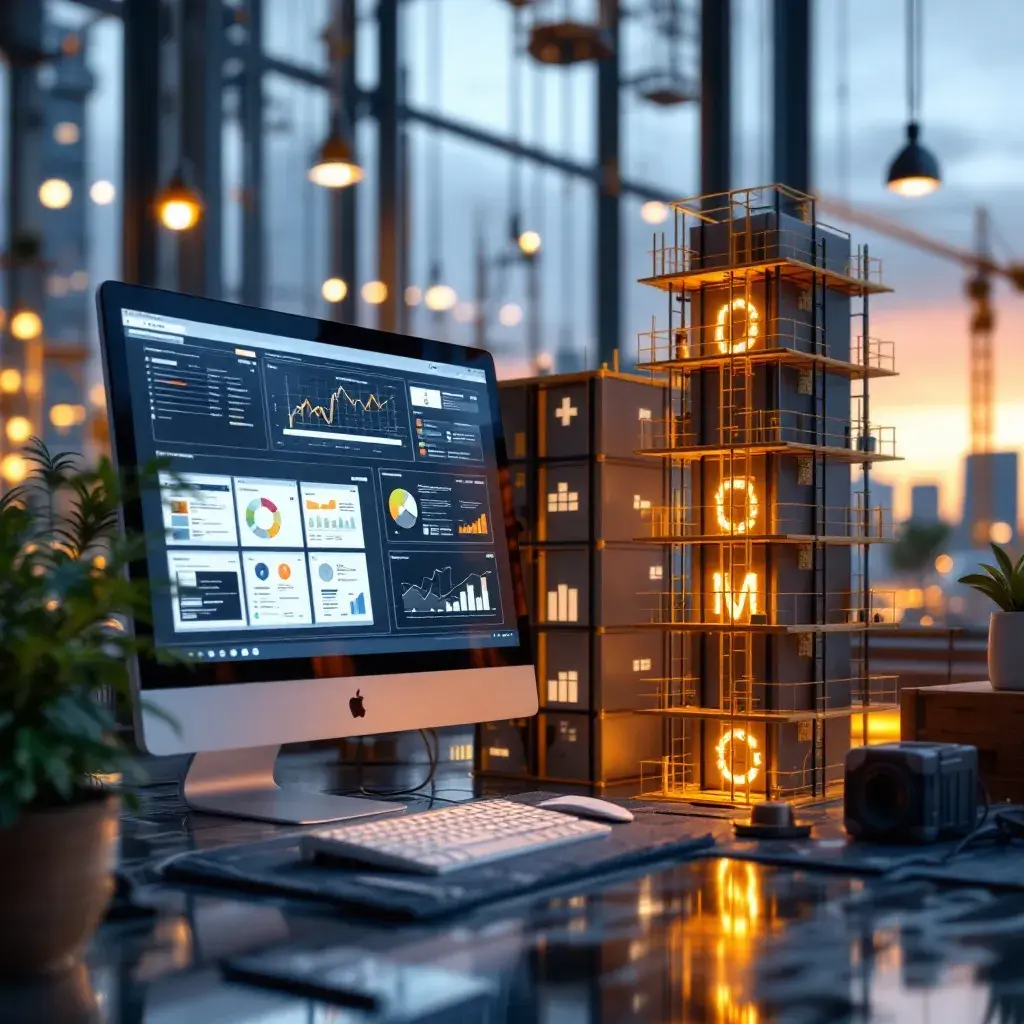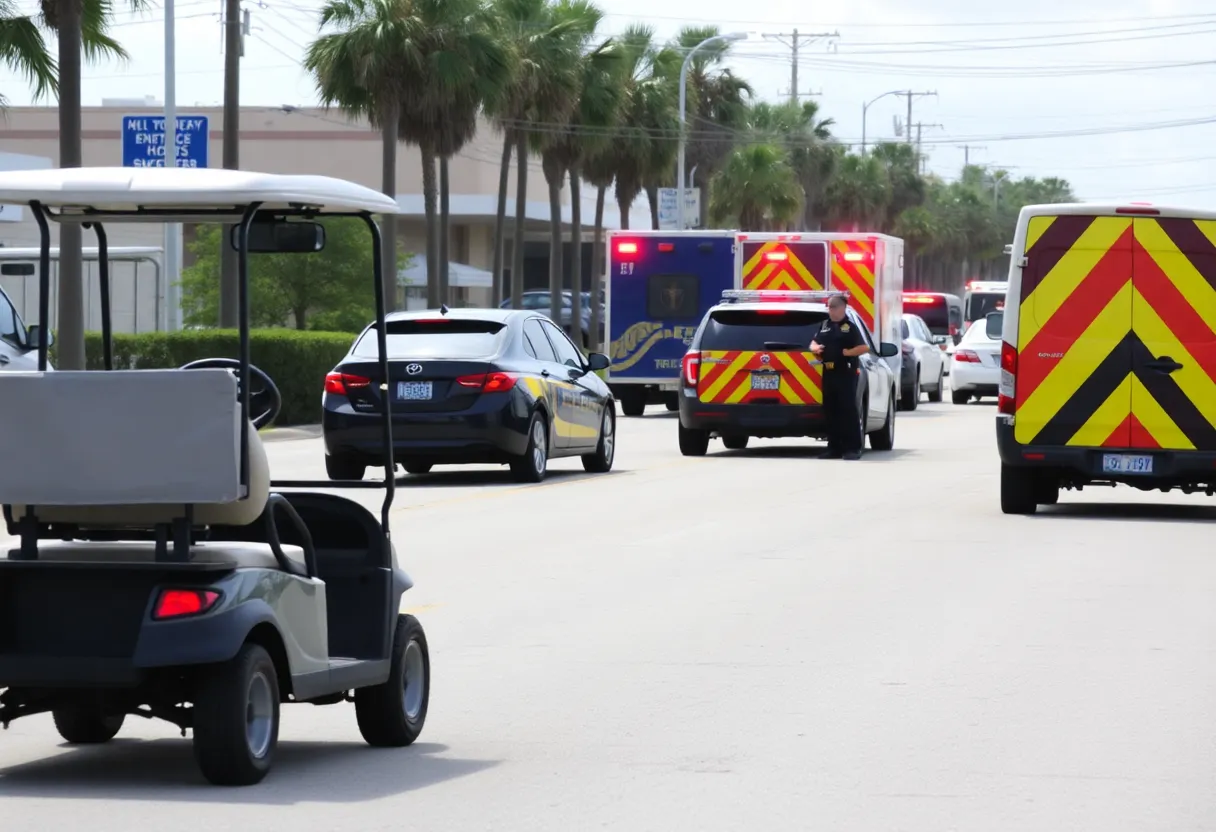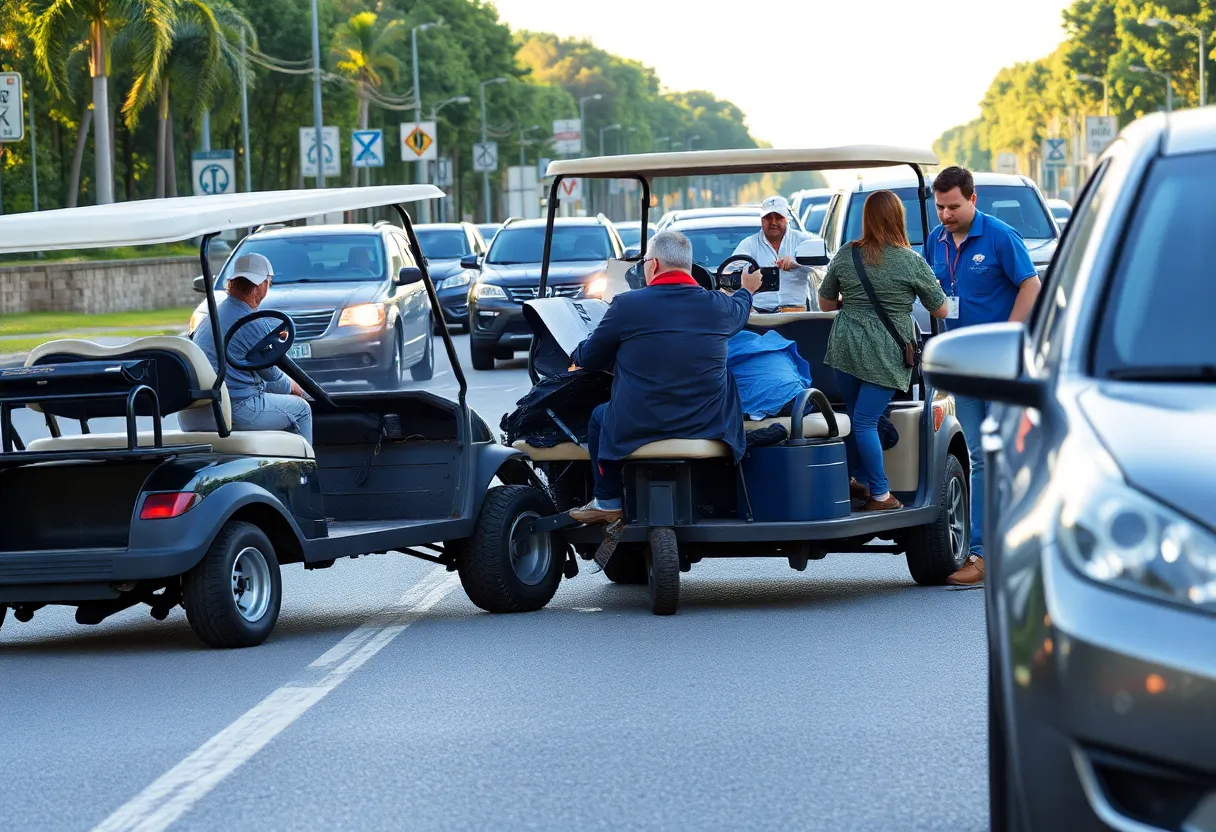News Summary
Nicolas Maduro was sworn in for his third term as Venezuela’s president in a low-key ceremony, following allegations of election fraud. Amid global scrutiny, protests erupted, and international sanctions were imposed against Maduro’s regime, highlighting ongoing political tensions and human rights concerns in Venezuela.
Maduro Takes Controversial Oath for Third Term
On January 10, 2025, Nicolas Maduro was officially sworn in for a third six-year term as the President of Venezuela. This inauguration wasn’t your typical grand affair; it took place in a modest room of the National Assembly, attended primarily by fervent supporters of the government, rather than the usual fanfare.
Ceremony Highlights
The event was led by Jorge Rodríguez, the leader of the National Assembly, who ceremoniously placed the presidential sash on Maduro, earning loud applause from the gallery. During his speech, Maduro emphasized that the power he wields does not come from foreign entities, firmly stating that no outside forces can dictate Venezuela’s leadership.
The Election Controversy
This swearing-in follows a highly controversial election held on July 28, 2024. Opposition figures have been vocal about their claims that the election was marred by fraud. According to their tallies, Maduro only garnered around 30% of the vote, while opposition candidate Edmundo González received a staggering 67%. Independent monitors like the Carter Center and the Colombian Electoral Mission supported these opposition tallies, resulting in international scrutiny of Maduro’s legitimacy.
International Reaction
As Maduro took office, the international community was quick to react. The United States and several other nations have recognized Gonzalez as the legitimate president-elect. A spokesperson for the White House’s National Security Council labeled the inauguration as “illegitimate,” highlighting a blatant disregard for democratic norms.
Following Maduro’s oath, the U.S. extended the Temporary Protected Status for Venezuelan nationals for another 18 months and put forth a hefty $25 million reward for information leading to the capture of Maduro and his close aide, Diosdado Cabello. New visa restrictions and sanctions were also imposed on eight officials aligned with Maduro’s regime.
Global Sanctions
The fallout extended beyond U.S. borders. The UK sanctioned 15 individuals linked to Maduro, while Canada followed suit with sanctions on 14 senior officials. The European Union also issued sanctions against 15 affiliates of Maduro’s government for their roles in undermining democracy and violating human rights in Venezuela.
Protests Erupt
In the lead-up to the inauguration, protests passionately erupted in cities including Caracas, reflecting deep-seated resentment towards Maduro’s presidency. To prevent disturbances, Venezuelan authorities closed the borders with Colombia and Brazil and suspended air travel, citing safety concerns.
González had planned to return to Venezuela to be inaugurated, but he decided against the journey due to fears for his safety. Instead, he continues to rally opposition from afar.
Increasing Oppression
Maduro has taken a rather dismissive stance towards opponents, referring to them derisively as “Guaidó 2.0,” drawing a line to former opposition leader Juan Guaidó’s attempt to claim the presidency. Amid rising tensions, it has been reported that over 1,700 political prisoners are currently being held, pointing to a stark increase in government crackdowns on dissent.
Continued Calls for Resistance
With more than 7.7 million Venezuelans fleeing the country during Maduro’s rule, calls for resistance continue to echo among various opposition groups. In the face of such despair, many Venezuelans remain hopeful for a change, although the road ahead looks tumultuous. The political landscape is fraught, dictating a tense atmosphere filled with uncertainty about the nation’s future.
A Stalemate
Post-inauguration, the Biden administration reiterated its unwavering commitment to exert pressure on Maduro’s regime, focusing on the ongoing disputes regarding Venezuela’s sovereignty and governance. Maduro, for his part, remains defiant, painting himself as the rightful leader, despite widespread condemnation.
Deeper Dive: News & Info About This Topic
- CNN: Maduro Takes Controversial Oath for Third Term
- Wikipedia: Nicolás Maduro
- AP News: Maduro’s Inauguration
- Google Search: Nicolas Maduro
- Reuters: US Sanctions Venezuela Officials
- Google Scholar: Venezuela politics
- Al Jazeera: Venezuela Braces for Maduro’s Inauguration
- Encyclopedia Britannica: Nicolás Maduro
- Washington Post: Venezuela’s Maduro Inauguration
- Google News: Venezuela inauguration 2025







